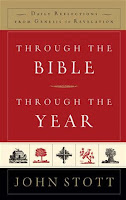Thus you shall say to the house of Jacob and tell the people of Israel.
The movement from the "house of Jacob," the most primary designation of the nation in its embryonic and tribal form (Exodus 1:1) to "people of Israel" captures the historical process by which Jacob's household becomes a nation. Now this story is told in a very compressed poem:
You yourselves have seen what I did to the Egyptians,
and how I bore you on eagles wings
and brought you to myself
Now therefore, if you will indeed obey my voice
and keep my covenant,
you shall be my treasured possession
among all peoples
for all the earth is mine:
And you shall be to me a kingdom of priests
and a holy nation.
Then three titles appear, which are new and signal a refinement to the call of Abraham in Genesis 12. Israel is to be "treasured possession" ('am segullah), a "kingdom of priests" (mamlekhet cohanim) and a "holy nation" (goy kadosh). We will focus our comments on the first phrase.
"Treasured possession" occurs eight times in the Old Testament, and most are used by the LORD to speak of Israel. Segullah is the Hebrew word that signifies a personal, prized possession and has nuptial overtones. In covenant contexts this is implied (see Deut. 7:6, 14:2, 26:18, I Chron 29:3, Ps 135: 4, Eccl. 2:8 and Mal 3:17). This is made more explicit when later writings compare covenant infidelity to adultery or harlotry, i.e. the covenant is a marriage (see Deut 31:16, 32:16, 21; Judges 8: 27, 33; Hosea 1:2 and 2:7, 5:4; Jer. 3:6-10 and 7:34 and many more).
This is the background to the first two commandments (no other gods and no idols), for the theological rationale for exclusive worship is that the LORD is a "jealous God" (20:5). This rationale and the nature of the prophetic denunciations of Israel in the face of unfaithfulness, suggest strongly that the covenant on Mount Sinai is nuptial in nature. God has betrothed himself to his people. The relationship is close, intimate, generative and exclusive - like that of Eden.

No comments:
Post a Comment